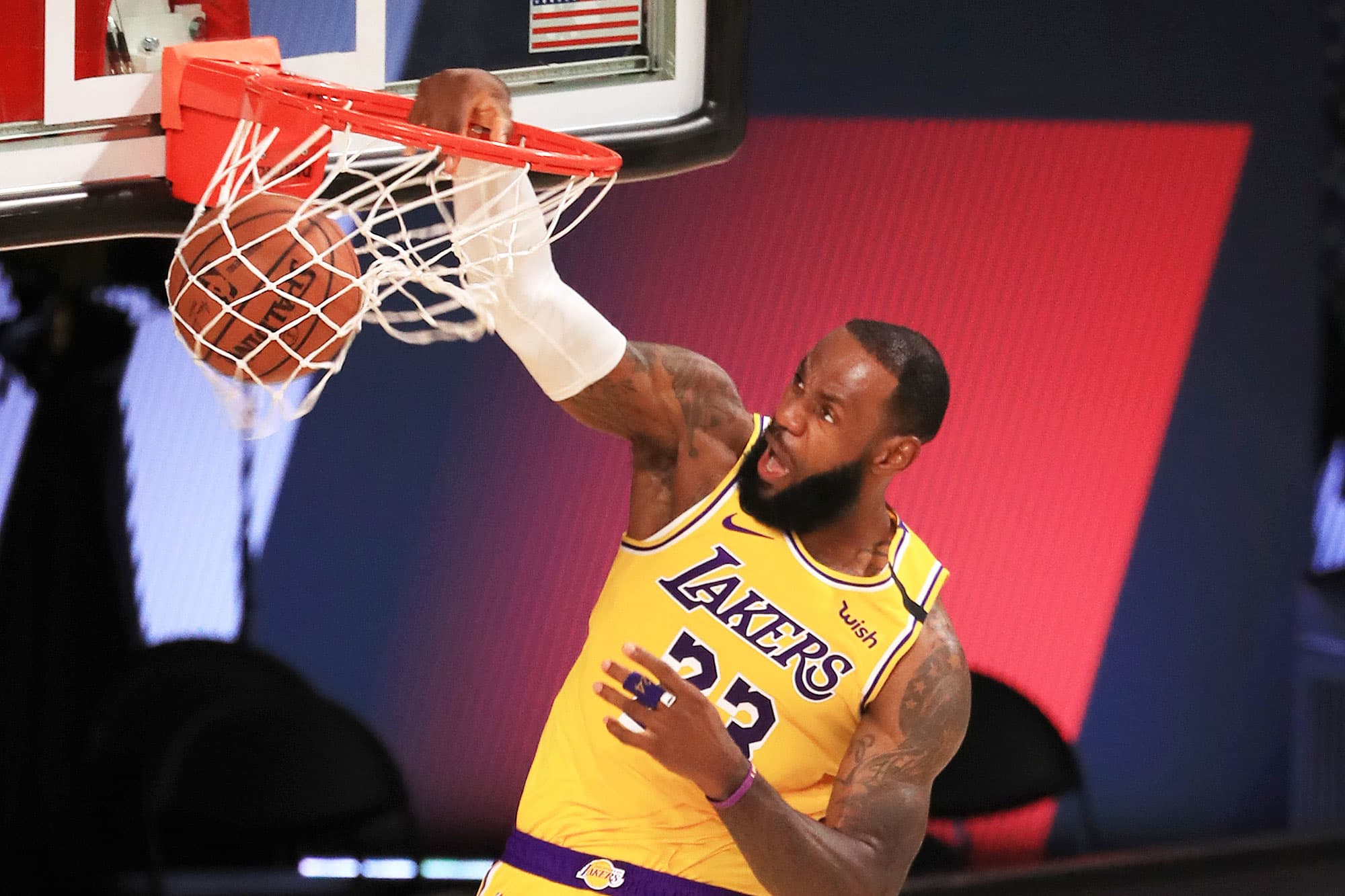LeBron James of the Los Angeles Lakers at a game against the LA Clippers at ESPN Wide World Of Sports Complex on July 30, 2020 in Lake Buena Vista, Florida.
Mike Ehrmann | Getty Images
In a search for revenue, state tax departments have set their sights on a tempting target: professional athletes.
“If you’re a state tax revenue official, you get a big bang for the compliance buck by targeting 12 guys on a pro team that are making big money,” said David Lopez, CPA with David A. Lopez and Co. in Philadelphia. His client base includes professional athletes.
“With states’ tax bases eroding in the last year, they are getting more aggressive [with pro athletes],” he said.
More from Smart Tax Planning:
Why small businesses face a nightmare tax situation
Some newlyweds face marriage tax penalty for 2020 vows
Remote workers could face surprise state taxes for 2020
The residency rules are straightforward for most states that levy income taxes. If you own or rent a residence and spend more than half the year in a state, you’re liable for taxes on all income earned inside and outside the state.
California, for example, has a top marginal income tax rate of 13.3%, which applies to income over $1 million for single taxpayers.
LeBron James, who just signed a two-year extension with the Los Angeles Lakers worth $85 million, will be on the hook for millions in annual state taxes on his salary alone, not to mention his lucrative endorsement deals.
Financial advisors typically recommend their athlete clients avoid making their homes in high-tax states like California, New York and Illinois if they can.
“I tell my athlete clients to stay liquid, rent a home, keep shallow roots and stay on the team,” said Ryan Losi, a financial advisor with Piascik. His clients include pro athletes.
“It can be really beneficial for them to move to a state like Florida or Texas that doesn’t have income taxes,” he said.
Home vs away
Lamar Jackson of the Baltimore Ravens, left, stiff arms the Kansas City Chiefs’ Juan Thornhill at Baltimore’s M&T Bank Stadium on Sept. 28, 2020.
Todd Olszewski | Getty Images
The tax picture for athletes gets more complicated for “away” games.
States with an income tax generally tax all income earned in the state by non-residents.
A visiting team of professional athletes can mean many thousands of dollars in state tax revenue for every day they spend in-state.
In a normal season, an average National Football League player will file between eight to 12 non-resident state tax returns, said Losi.
National Basketball Association players file 16 to 20 of these tax returns, while Major League Baseball players may submit 20 to 25.
The objective for states is to tax as many so-called “duty days” of non-resident athletes as they can. They generally include game days, travel days and any part of a day spent within the state.
Lopez keeps a spreadsheet for every athlete-client detailing where they are each day, backed up in many cases by a cellphone app that tracks their location.
States can and do demand proof of athletes’ whereabouts.
The competition for these athlete duty days has increased with the pandemic because shortened seasons and altered work patterns for athletes make them more valuable.
“When the season is shorter or maybe there is no pre-season, there are fewer working [duty] days,” said Losi. “That means that non-resident taxation goes up for each individual day.”
Complexities from remote work
The increase in remote working by athletes has also created a new battleground for state tax departments.
If an athlete in one state works with coaches and training staff in another state via a Zoom session, which state gets to claim the duty day for tax purposes?
New York state, which levies a top marginal tax rate of 8.82% on income over $1,077,551, treats them as New York duty days regardless of where the athlete is physically, said Timothy Noonan, a lawyer with Hodgson Russ focused on athlete tax issues.
Some states have followed suit with New York, but other states may not agree.
“It can result in a double taxation situation,” said Noonan.
If it is New York and California at odds, an athlete could potentially be taxed at a level of more than 20% for state taxes alone. “Unfortunately, there is not a lot of planning that athletes can do to avoid this kind of interplay between states,” Noonan said.
The pandemic-induced changes in pro leagues have not all been negative for athletes.
Jimmy Butler and his Miami Heat teammates lost the NBA championship to the LA Lakers this year, but they will save millions on their taxes.
That’s because Florida has no income tax. Further, thanks to the bubble that the NBA created in Orlando to finish the season, athletes living there avoided all the state taxes they would normally pay for “away” games.
LeBron James and the Lakers the other hand, remain on the hook with the California taxman.
“The bubble was neutral for those athletes living in high tax states,” said Noonan of Hodgson Russ. “If you live in California, you pay the full amount.”
